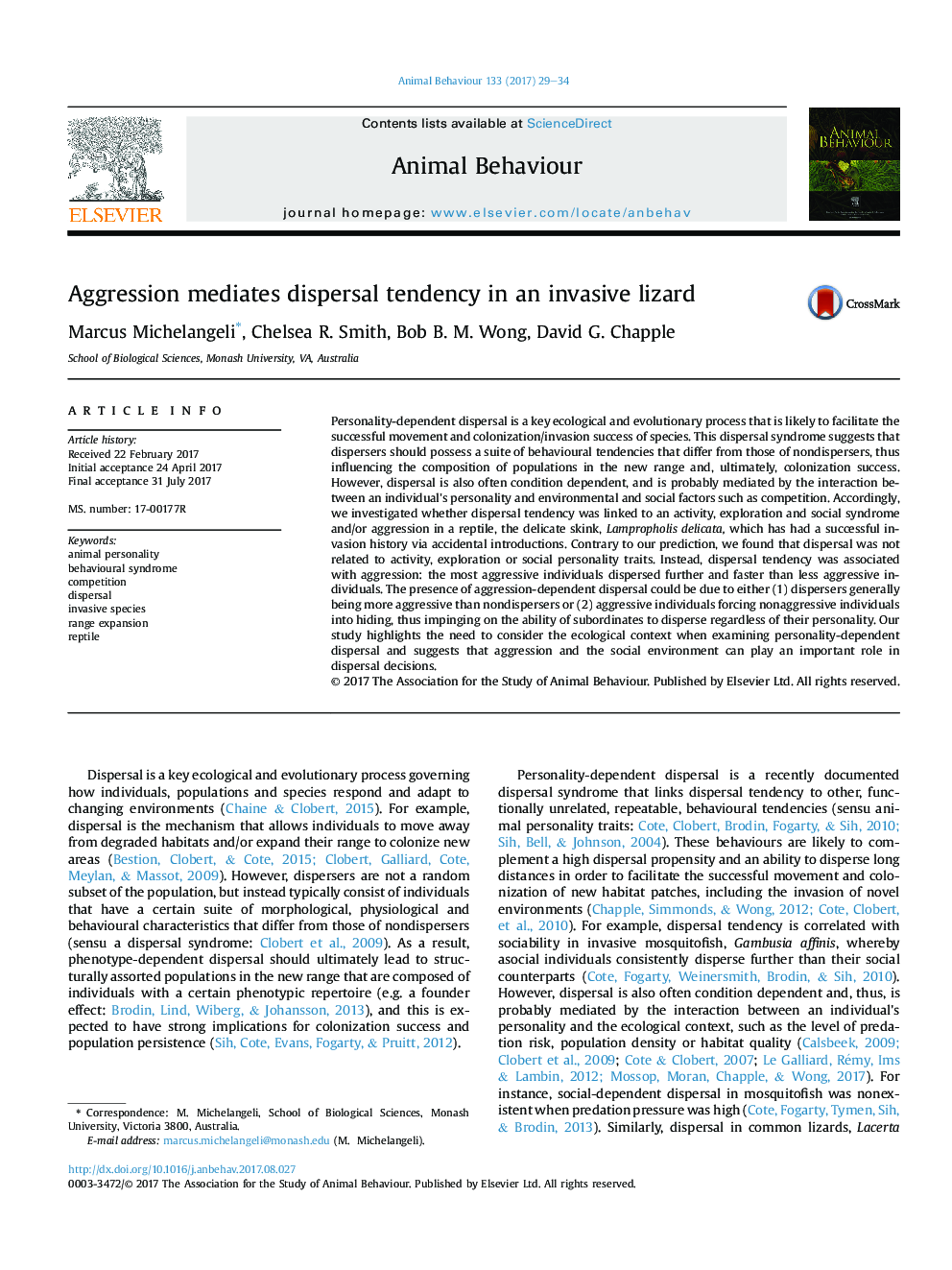| Article ID | Journal | Published Year | Pages | File Type |
|---|---|---|---|---|
| 5538310 | Animal Behaviour | 2017 | 6 Pages |
Abstract
Personality-dependent dispersal is a key ecological and evolutionary process that is likely to facilitate the successful movement and colonization/invasion success of species. This dispersal syndrome suggests that dispersers should possess a suite of behavioural tendencies that differ from those of nondispersers, thus influencing the composition of populations in the new range and, ultimately, colonization success. However, dispersal is also often condition dependent, and is probably mediated by the interaction between an individual's personality and environmental and social factors such as competition. Accordingly, we investigated whether dispersal tendency was linked to an activity, exploration and social syndrome and/or aggression in a reptile, the delicate skink, Lampropholis delicata, which has had a successful invasion history via accidental introductions. Contrary to our prediction, we found that dispersal was not related to activity, exploration or social personality traits. Instead, dispersal tendency was associated with aggression: the most aggressive individuals dispersed further and faster than less aggressive individuals. The presence of aggression-dependent dispersal could be due to either (1) dispersers generally being more aggressive than nondispersers or (2) aggressive individuals forcing nonaggressive individuals into hiding, thus impinging on the ability of subordinates to disperse regardless of their personality. Our study highlights the need to consider the ecological context when examining personality-dependent dispersal and suggests that aggression and the social environment can play an important role in dispersal decisions.
Keywords
Related Topics
Life Sciences
Agricultural and Biological Sciences
Animal Science and Zoology
Authors
Marcus Michelangeli, Chelsea R. Smith, Bob B.M. Wong, David G. Chapple,
